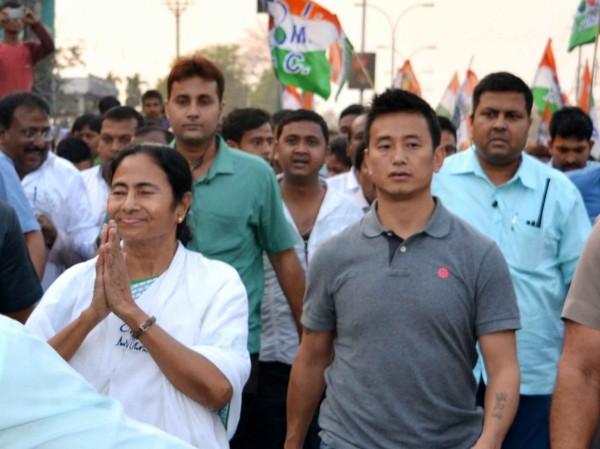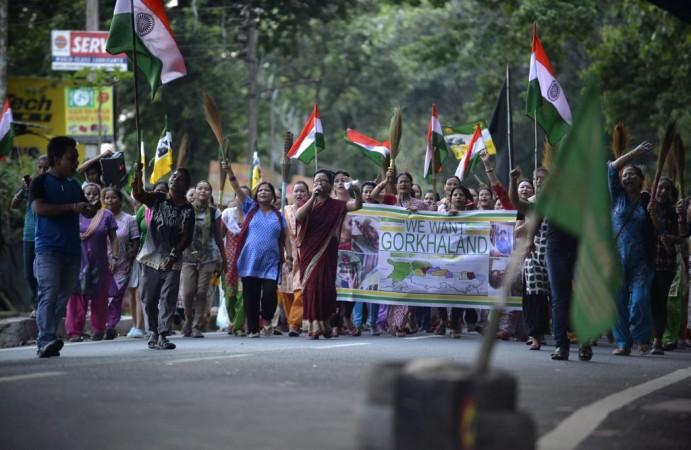
He is known to be close to West Bengal Chief Minister Mamata Banerjee. He had even contested two big elections on the tickets of the state's ruling Trinamool Congress (TMC) – in the 2014 Lok Sabha and 2016 Assembly elections – though could not win any. The state government had also honoured him with the Bangabhushan award. And now, former Indian national football team captain Baichung Bhutia has spoken in favour of a separate Gorkhaland, leaving the TMC stunned.
Bhutia, who hails from Sikkim adjoining North Bengal, told a publication in an interview that he is in favour of Gorkhaland personally. Though Bhutia was silent during the recent agitation and violence over the issue, he said that he spoke to the local people as well as senior bureaucrats and TMC leaders about the matter and claimed that a lot of leaders, bureaucrats as well as a section of the society are in favour of a separate Gorkhaland but they lacked the courage to express their minds.
In 2016, Bhutia criticised Modi govt over Gorkhaland
However, this is not the first time that Bhutia has clearly spoken on the Gorkhaland issue. Ahead of the Assembly elections last year, the former footballer who had contested from Siliguri but lost to veteran Left leader Asok Bhattacharya, he had said that he would be the happiest person had the Centre and state collaborated together to form Gorkhaland. He had criticised the BJP government then accusing it and Prime Minister Narendra Modi of ignoring the issue despite promising the same before the 2014 Lok Sabha elections. The BJP has won the Darjeeling seat in the general elections in two consecutive terms since 2009.
Bhutia's latest words could leave the TMC government of Bengal shaken, especially in the wake of the recent violence and even loss of human life. The Mamata Banerjee government has undertaken a iron policy to defeat the Gorkha Janmukti Morcha which fights for a separate Gorkhaland and hunt is being on for its supremo Bimal Gurung. Even the relation between Bengal and Sikkim has deteriorated after the chief minister of the latter state, Pawan Chamling, openly backed the Gorkhaland agitators and said the relentless violence has hurt its economy badly.

For the TMC leadership, Bhutia's latest take on Gorkhaland will be a bigger shocker than that said last year because this time, it is the state government which is facing the backlash. The BJP is also experiencing ire for its lack of commitment and consistency but the steady decline in the law and order problem has put the Banerjee administration on the firing line before anybody else. Bhutia's personal opinion at this sensitive juncture will add to the TMC's political and administrative challenges.
Can ethnic problems be only resolved politically?
The other aspect which Bhutia's take reveals is that the iron policy of the Banerjee government has angered the collective ethnic feelings of the region. Politically, Banerjee's move has been a winner but the ethnic sentiments prevalent in the Hills that overlap northern Bengal and Sikkim have been hurt and Bhutia's words reflect that solidarity. The ex-footballer's take actually exposes the incompatible cultural conflicts between the Bengali and Hill identities and though it is the power-holder Bengali identity which has all the firepower to physically eclipse the opponent, the social repercussions are not that easy to overpower.
Is the political power structures in Kolkata and New Delhi that determine the fate of the Darjeeling region which has a sensitive location. Going by the strategic concerns, neither the Centre nor the state can yield to the demand of Gorkhaland and risk annoying the ethnic communities that have also united at the time of the violence despite their own internal squabble.
There is an urgent need for a peace mechanism to allay the angry sentiments of those seeking Gorkhaland so that the issue doesn't turn into an internal challenge as was seen recently. Those in power should see the caution intended in Bhutia's words and not wonder how he could 'violate' the party line. Parties are meant for political activism which again, is not the real solution for a far more complex problem which is Gorkhaland.













